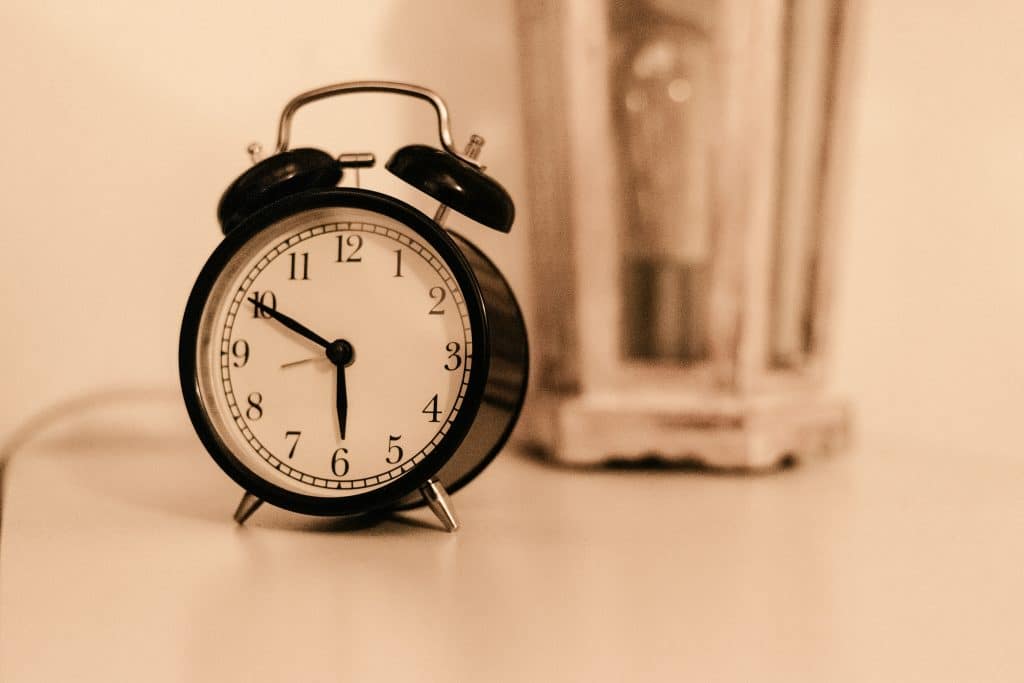You found our post about Amy’s Tips to Transform Your Morning Routine.
Today I would like to talk about morning routines and how important it is to set intentions for the day. When I was in my 20s, I was a go-go-go person. I wanted to get through my to-do lists in the morning, and later I realized there is a lot of benefits to starting the day slowly. Mornings can set the tone for your entire day. By incorporating healthy tasks into your morning routine, you can boost your energy, enhance your focus, and improve your overall well-being. I am going to share what I do in the morning in case anyone finds these wellness tips useful.
This post is related to 7 Bedtime Rituals For Better Sleep.
This list includes
- morning regimen
- routine for morning
- work morning routine
- good morning routine
- morning ritual
- daily schedule routine
Let’s get started!
List of Amy’s Tips to Transform Your Morning Routine
Whether you’re an early bird or a night owl, these morning habits can help you start your day on the right foot.
1. Wake Up Early
Waking up early has numerous benefits. It gives you a head start on the day, allowing you to complete tasks without feeling rushed. Early mornings are often quieter, providing a peaceful start to your day. Aim to wake up at the same time every day, even on weekends, to regulate your body’s internal clock.
2. Hydrate First Thing
I go to the kitchen and bring out the coconut water to mix with green powder. It’s so important to put something nice and clean in your body. It feels like you take care of yourself and set up the day for success.
After several hours of sleep, your body is naturally dehydrated. Drinking a glass of water as soon as you wake up kickstarts your metabolism, aids digestion, and helps flush out toxins. Drinking water in the morning helps rehydrate your body after hours of sleep. Proper hydration is essential for maintaining bodily functions, including temperature regulation, nutrient transportation, and joint lubrication. Research shows that even mild dehydration can impair mood, memory, and brain performance.
3. Practice Mindfulness or Meditation
Starting your day with a few minutes of mindfulness or meditation can significantly impact your mental well-being. Mindfulness helps you stay present and focused, reducing stress and anxiety. Find a quiet spot, sit comfortably, and focus on your breath.
Another thing I do to practice mindfulness is journaling. I will write down my thoughts on blank paper, any thoughts at all, and I don’t actually look at it. I just feel like it’s nice to write it down. Sometimes you get some ideas out of it.
Meditation has been shown to reduce stress, anxiety, and depression. It can also enhance attention, concentration, and overall emotional well-being. A study from Harvard Medical School found that meditation can increase the density of gray matter in the brain, which is associated with learning, memory, and emotional regulation.
4. Stretch or Do Yoga
In the mornings, I do a 10-minute workout. I find the shorter workout is important for myself because it helps me to keep it consistent. To me, doing it consistently is more important than having a very intense workout.
Exercise in the morning can boost your mood and energy levels for the day ahead. Physical activity stimulates the production of endorphins, which are natural mood lifters. It also improves cardiovascular health, increases muscle strength, and enhances overall physical fitness.
Incorporating some form of physical activity in the morning can wake up your body and mind. Stretching or doing yoga can improve flexibility, increase blood flow, and reduce muscle tension. A short yoga routine can also calm your mind and prepare you for the day ahead.
5. Fuel Your Body
Breakfast is often referred to as the most important meal of the day. A balanced breakfast fuels your body and brain, improving concentration and performance. Opt for whole foods like oatmeal, eggs, fresh fruits, and yogurt. Avoid sugary cereals and pastries, which can lead to energy crashes later in the day.
A nutritious breakfast provides the energy and nutrients needed to kickstart your day. Research indicates that people who eat breakfast tend to have better memory and attention throughout the morning. A balanced meal with protein, healthy fats, and complex carbohydrates can stabilize blood sugar levels and prevent mid-morning energy slumps.
6. Plan Your Day
Taking a few minutes to plan your day can increase productivity and reduce stress. Write down your top three priorities, schedule your tasks, and set achievable goals. This practice not only keeps you organized but also gives you a sense of control over your day.
Planning your day can improve productivity and reduce stress. By setting clear goals and priorities, you can focus your energy on what’s most important. This practice can also prevent decision fatigue, a phenomenon where the quality of decisions deteriorates after a long session of decision-making.
7. Activate Your Creativity
Stimulate your brain by engaging in a creative activity in the morning. This could be anything from journaling, painting your nails, or playing a musical instrument. Creative activities can enhance problem-solving skills, improve mood, and increase overall happiness.
8. Get Some Fresh Air
If possible, spend a few minutes outside in the morning. Exposure to natural light helps regulate your circadian rhythm, improving sleep quality and mood. A short walk or even sitting on your balcony with a cup of coffee can have a positive impact on your day.
9. Limit Screen Time
On an ideal day, I don’t look at my phone. Avoid reaching for your phone or computer first thing in the morning. Checking emails and social media can lead to information overload and stress. Instead, focus on more grounding activities like reading a book, meditating, or enjoying your breakfast mindfully.
10. Practice Gratitude
Starting your day with gratitude can shift your mindset to a more positive outlook. Take a few moments to reflect on what you’re grateful for. You can write these down in a journal or simply think about them. Gratitude can improve mental health, enhance relationships, and increase overall life satisfaction.
Practicing gratitude has been linked to numerous psychological benefits, including increased happiness, reduced depression, and improved resilience. Gratitude activates the brain regions associated with dopamine, a neurotransmitter that plays a role in reward and pleasure.
Final Thoughts on Amy’s Tips to Transform Your Morning Routine
A well-structured morning routine can set a positive tone for your entire day. By incorporating healthy tasks like hydrating, practicing mindfulness, engaging in physical activity, and planning your day, you can enhance your physical, mental, and emotional well-being. Remember to start small, be consistent, and listen to your body. With time and practice, these habits will become a natural and enjoyable part of your morning.
Now that you have an array of healthy tasks to choose from, it’s important to create a morning routine that suits your lifestyle and preferences. Here are some tips to help you design a routine that works for you:
Start Small
Incorporating too many changes at once can be overwhelming. Start with one or two new habits and gradually add more as they become a natural part of your routine.
Be Consistent
Consistency is key to forming new habits. Try to follow your morning routine every day, even on weekends. This helps reinforce the habits and makes them second nature.
Listen to Your Body
Everyone’s body is different. Pay attention to how your new habits make you feel. If a particular activity doesn’t resonate with you or causes discomfort, feel free to adjust or replace it with something else.
Prepare the Night Before
Set yourself up for success by preparing for your morning routine the night before. Lay out your workout clothes, prepare breakfast ingredients, or set up your meditation space. This reduces decision fatigue and makes it easier to stick to your routine.
Stay Flexible
Life is unpredictable, and there will be days when your routine gets disrupted. That’s okay. The goal is to have a framework that guides you, not a rigid schedule that adds stress. Be flexible and adapt as needed.
Embrace the power of a healthy morning routine and watch how it transforms your life. Whether you’re aiming for increased productivity, better health, or a more positive outlook, the way you start your day can make all the difference. Start tomorrow morning, and let the benefits unfold.
Next, check out our post about 6 Tips for Better Sleep.







